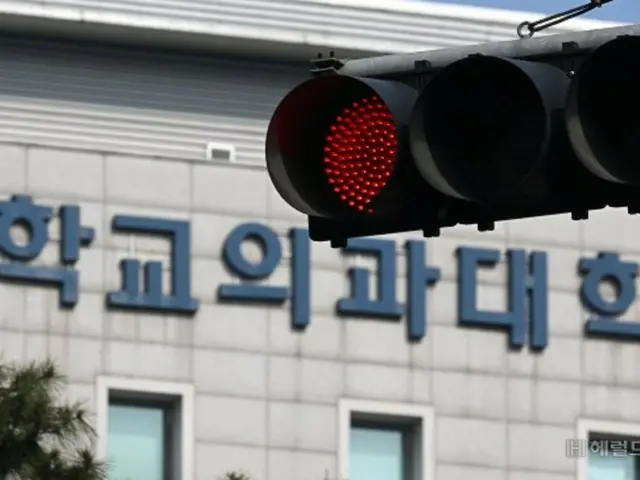In response to this, the government is considering holding an additional national medical examination, which is currently held in January every year, for students who will graduate in August.
Regarding the special treatment, the news agency Yonhap News reported, "There is criticism that this is excessive benefit to students who boycotted classes."
In South Korea, the shortage of doctors is becoming serious, especially in rural areas.
In an effort to alleviate the shortage, the administration of then-president Yoon Seok-yeol announced in February last year that it would increase medical school admissions quotas by 2,000 students each year for five years starting from 2025.
However, the medical community opposed this policy. They said that the overall number of doctors was sufficient, and that the cause of the doctor shortage was a lack of doctors in so-called "essential medical departments" such as surgery and obstetrics and gynecology.
As soon as the government's policy was announced, the medical community expressed their intention to protest by mass resignations of trainee doctors. This caused confusion in the medical field, with delays to regular examinations and surgeries.
However, the Ministry of Education decided last year to recruit 4,610 students for 2025 in medical schools across the nation, an increase of 1,497 from the previous year.
Although the increase in admissions was reduced from the initial plan, it was decided to increase admissions quotas for the first time since 1998. In response to the government's policy to increase admissions quotas for medical schools, interns resigned en masse to show their intention to protest, and medical students
Many students also rebelled, taking time off school and boycotting classes. Although the first half of the 2013 academic year began in March, students continued to take time off school at medical schools at each university.
The government announced its intention to return the number of students admitted to medical schools next year to the level before the increase, on the condition that students return to their studies. Prior to this, the "For the Advancement of Medical Schools" organization, which is made up of the presidents of 40 universities with medical schools,
The Japan Medical Association and other groups have submitted a document to the Ministry of Education stating that if the government returns enrollment limits to the number before the increase, universities will ensure that students are allowed to return to school.
In response to this, almost all students applied to return to school. However, the percentage of students actually attending classes was only small.
There was also a movement to refuse to take the national medical exam. In April, the government officially announced that the number of students to be admitted to medical schools in 2014 would be restored to the previous level of 3,058, the number before the increase. However, regarding the number of students from 2027 onwards,
On the 12th of this month, the Korean Medical University and Graduate School Student Association, a medical student group, released a joint statement with the Korean Medical Association and others, stating that all students will be required to take classes.
In response, South Korean newspapers reported that "the conflict between the medical community and the government, which has continued for one year and five months, is expected to come to an end, and this will be an opportunity to normalize the medical system" (Dong-A Ilbo), while others said that "the
"There are many issues that need to be resolved before things can return to normal," the Hankyoreh reported. There are about 8,000 medical students who did not attend classes in the first semester of this year, but many of them are "
The university operates on a "year-year system," and if students do not obtain the necessary credits in the first semester, they are usually not allowed to take classes in the second semester. With the student association declaring the return to classes, the question remains as to when students will return.
The Medical Association held discussions with the Student Association. They decided to change the school regulations from the "grade system" to the "semester system," allowing students who were scheduled to repeat a year to return from the second semester, and communicated this to the government.
The Ministry of Education announced on the 25th that it would respect this. In addition, the Medical Association of Japan has decided to postpone the National Medical Examination held every January for students who will graduate in August due to the return to school from the second semester.
They are also calling for additional exams to be held, and the government said it would "consider this." This policy is intended to resolve the confusion surrounding the medical school quota issue that has continued since February last year and to normalize the situation, but there has also been no apology or reflection.
There have been criticisms of the special measures being taken for students who are trying to return to school without any prior notice. According to Yonhap News, as of the 25th, there were 64,000 petitions from the public opposing the special measures.
According to the South Korean newspaper Hankyoreh, Seoul University School of Medicine professor Ha Eun-jin said in an interview with the newspaper, "No matter how much he is a victim (of the government's flawed policies),
"They (medical students) are also perpetrators at the same time. If they are perpetrators, they have a responsibility to say 'I'm sorry.'" He added, "We have high hopes for good doctors, but Korean society has created an environment where such people cannot be nurtured.
"We should take a look back at the history of the company," he said.
2025/07/28 11:32 KST
Copyrights(C)wowkorea.jp 5

